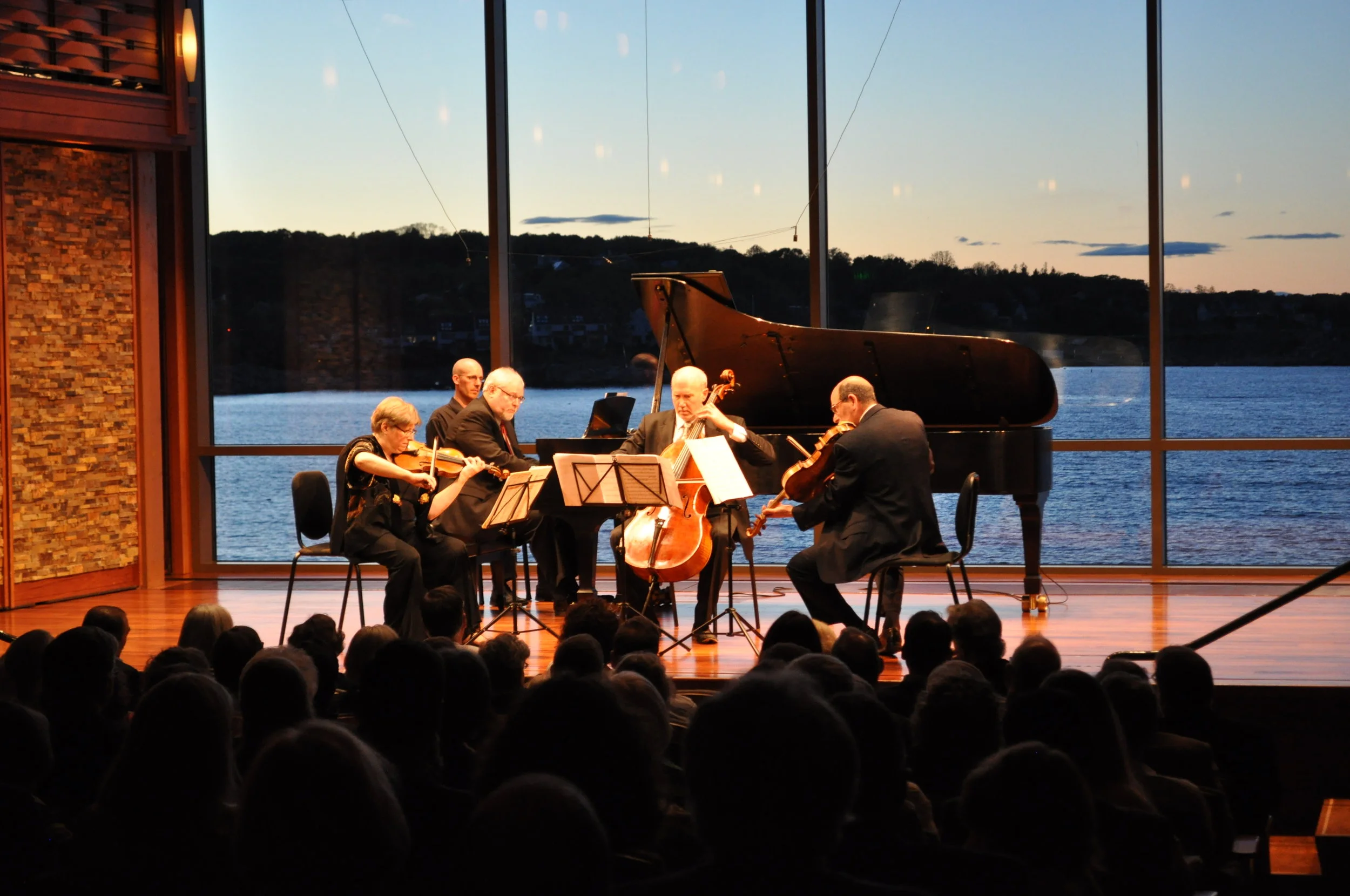Heng-Jin Park (piano) and Jonah Ellsworth (cello), at the Rockport Chamber Music Festival, Thursday, June 8, 2017
Heng-Jin Park and Jonah Ellsworth
Tackling angular, expressive and intense music by turns, pianist Heng-Jin Park and cellist Jonah Ellsworth presented a far-reaching sonata recital Thursday evening in the Shalin Liu Performance Center, opening the second week of the Rockport Chamber Music Festival.
The duo played sonatas by Janacek, Mendelssohn and Brahms; the cellist offered George Crumb’s devilish solo sonata as well. It was a challenging program, confidently played, with many rewards and some shortcomings as well.
Park and Ellsworth—mother and son duo—also form two-thirds of the well-known Boston Trio. Ellsworth has by now outgrown his delineation as a young artist, or a prodigy, and is firmly at the level of any performing artist. That leads to increased demands for concentration and execution from his listeners—most of which were met Thursday evening.
Janacek’s three-movement Pohádka opened the program. An unusual pizzicato intro alerts listeners that this sound-world digs deep into folk roots. A second, more lyric movement that leads to a passionate climax; and a briefer, song-like finale, exiting with a lovely dotted melody, create a distinct narrative line.
Ellsworth’s virtuosity might have been called “once in a generation,” a generation (or more) ago. No longer. This is an age of virtuosity, and the technical challenges that once defined professional playing are now considered (rightly or wrongly) less daunting.
Ellsworth’s confidence and technical skills are formidable, no matter what the designation. His attack, the ease with which he facilely renders the most challenging positions and phrases—these things fill the listener with the prospects of musical rewards.
Mendelssohn’s D major sonata offered challenges in that regard. There are works where expression is possible; there are works were expression is necessary. Almost all of Mozart. And most of Mendelssohn.
Four prodigious movements create deep possibilities with this sonata. From the many substantial moments, the opening of the third movement Adagio stood out here as an example of what could be. Deeply sustained and strummed arpeggios led from the keyboard; Park played beautifully, drawing each of the repeats out, creating rich expectations—everyone knew the cello would eventually take up the melody, with many possibilities.
They were partially achieved. Rather than an emotional return on investment, more stalwart playing ensued. Intonation was always secure, bowing contact firm, consistent. But much expression was left unachieved.
The magisterial chorale in the piano intimated passionate response; what followed sounded presentable. It wasn’t inability—it seemed like a lack of concentration.
Just sometimes. Crumb’s sonata—built on a theme and variations, but powered by its concluding Toccata—was perfect for Ellsworth’s hands. Demanding, shifting on a dime, the sonata asked for skill and insight, and got it.
Park rejoined Ellsworth for the muscular F major Brahms sonata. Tremolos in both instruments drive the energetic first movement. The duo raced with energy, the phrasing brisk but not hurried, articulate but impetuously fast-paced. The slow movement—the only respite from the vigorous energy, and the only movement in an alternate key—lingered appropriately. The pizzicato opening seemed particularly well thought out.
Energy returned in the third movement, and the finale continued it, adding a touch of elegance as well. An encore was demanded, and received: a transcription of Elgar’s lyric nocturne, “Salut d’Amour.”
RCMF continues this weekend with appearances by the Jupiter Quartet (tonight, with the Jasper Quartet) and Sunday (with clarinetist Richard Stoltzman). Saturday evening pianist Russell Sherman performs late Beethoven sonatas. Visit www.rockportmusic.org or call 978-546-7391.





